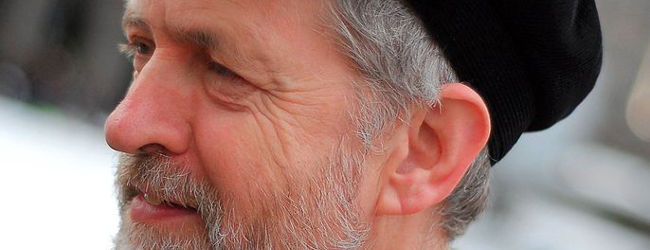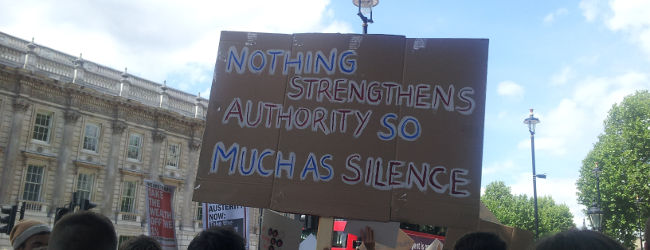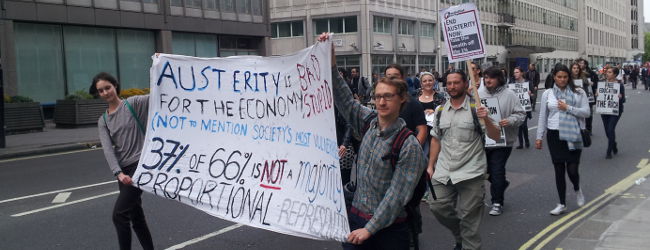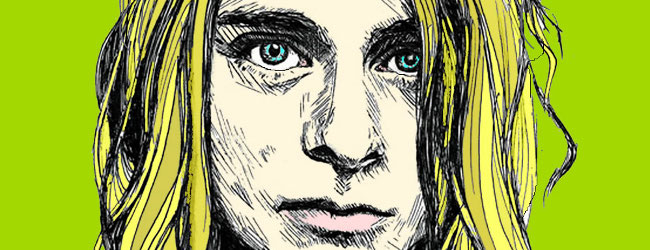Standing opposite Downing Street on the evening after the Queen’s Speech, Jeremy Corbyn, the leftist Labour MP for Islington North, thanked the small crowd of anti-austerity campaigners for showing up. “We prove there is a different voice,” he said to the ramshackle bunch.
In a parliament where even the leftwing Labour party has accepted the need for austerity, that voice on the hard left has been loud and angry since the Tories triumphed unexpectedly at the polls. On the very day Corbyn spoke, the crowd of anti-austerians had cornered the Ukip MP Douglas Carswell, shouting “racist” and “fascist” at him until the police were forced to whisk him away in a van.
Such aggression is one side of Labour’s existential dilemma since it was embarrassed at the general election, an event which prompted two explanations. On one side the Blairites believe that the (now former) leader Ed Miliband failed to tap into the “aspiration” of the British people. Even Andy Burnham, widely seen as the candidate closest to the unions, spoke to this in his campaign video.
Meanwhile the likes of Corbyn have been trumpeting another view: Labour lost the election because it was insufficiently leftwing, or at least could not articulate its leftwing views in a way that was compelling. Speaking on this theme outside Downing Street, Corbyn said: “I’m in favour of aspiration, but not for the individual. I aspire for the whole community to be decently housed, for a young person to get somewhere to live.”
This focus on community is something that Labour has mostly abandoned since former prime minister Tony Blair bolted the word “New” to the party’s name and sought to steer it to the centre-ground. The Blairite method is more or less the strategy being plotted by the rest of the contenders for the Labour leadership: which includes Burnham, Liz Kendall, Yvette Cooper (wife of defenestrated shadow chancellor Ed Balls) and Mary Creagh.
As such Corbyn’s entry into the contest marks him out from the pack. To make it onto the ballot paper he now needs 35 Labour colleagues in the Commons (15 percent) to back him. He will then face the popular vote in which every Labour member and affiliated supporter (mostly unionists) gets a single vote.
Most do not expect him to win, but now at least Burnham has an adversary on his left flank. As well as being anti-austerity Corbyn has many other leftist views to his name: staunchly defending the welfare state and NHS from perceived privatisation by the Tories; opposing war and the use of nuclear weapons; and campaigning against racism and imperialism with Liberation, an advocacy group.
The extent to which such positions are relevant in today’s world and the worldview of Parliament will define how much of an impact Corbyn has. Populist politics of both the Left and the Right have been a growing trend throughout Europe as the rigours of austerity provoke protest – most notably in Greece where Syriza has moved the country to the brink of financial turmoil in negotiations with creditors.
Commenting on this after the Queen’s Speech, Corbyn said: “A generation [of Greeks] don’t work, don’t hope and don’t have opportunity. And they have said ‘No’.” Unfortunately for the Islington North MP, the British people just said “Yes” to a Tory government headed in the opposite direction.
Header Image – Jeremy Corbyn, February 2007 by David Hunt





